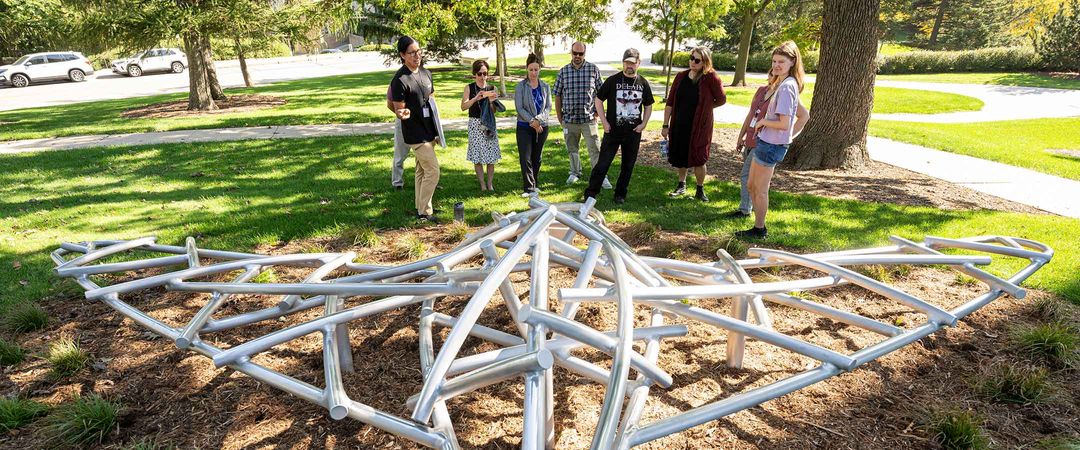Yoshiko Herrera is a professor of political science at UW–Madison, with a particular interest in Russian politics and social identities. She completed her undergraduate degree at Dartmouth College and earned her doctorate in political science at the University of Chicago. Herrera taught at Harvard University before coming to the UW in 2007. Her expertise in U.S.-Russia relations and post-communism has been a valuable resource for understanding the war in Ukraine. During the February 13 episode of The UW Now Livestream, Herrera will join political science professors Jon Pevehouse and Steven Brooke to discuss several ongoing and brewing international conflicts, including the wars in Gaza and Ukraine and the recent Iranian-backed attack that killed three U.S. military members. Together, the panel will explain how these conflicts overlap and complicate American foreign policy.
What’s your chief area of research?
My chief area of research is Russian politics, specifically identity, nationalism, and political economy. I’m also teaching a course on the Russian war on Ukraine this semester.
What do you plan on discussing on the livestream?
I will be focusing on the Russian war on Ukraine, but this event will be a bit more of a comparative view — something like “wars in the world” and how they are related. The idea is to talk about the Ukraine war, Israel, Gaza, Iran, and the U.S. strikes on Iraq and Syria. We’ll talk about all these conflicts and how they affect each other.
For example, Iran is a direct sponsor of the militias who attacked and killed three American soldiers in Jordan. Iran is also supplying drones to Russia, which Russia is using in Ukraine, and it was a drone attack that killed those U.S. troops. Iran is a supporter of the Houthis, and the Houthis are also attacking U.S. shipping and other countries’ shipping routes in the Red Sea, and Iran is a supporter of Hamas in Gaza. Hence, Iran connects all these conflicts. In addition U.S. policy and support is tied together legislatively, in that funding for Ukraine, Israel, and humanitarian aid is being packaged together. There are also certain humanitarian parallels in the Israel/Gaza and Ukraine wars. Those are just three examples of the connections across the conflicts.
What is one takeaway that you’d like to leave viewers with?
The U.S. Senate is currently debating a bill to support military aid for Ukraine and Israel and international humanitarian assistance. Unfortunately, there has been disarray within the U.S. Congress, which has led to questions about the reliability of United States support. The takeaway is: we’re at an incredibly important moment in U.S. foreign policy. Europe, countries in the Middle East, and countries all over the world are looking to see what the U.S. is going to do, and at the moment, we’re consumed in Congress with domestic political squabbles rather than showing resolute leadership in the world. The American people need to understand that the consequences could be dire, not only for Ukraine and Israel in the short term — but for the United States itself — if Russia, Iran, and China are strengthened and further emboldened.
Do you have any sources you could recommend to viewers to get an overview?
This is a free podcast [episode] from Foreign Affairs, featuring an interview with Foreign Minister of Ukraine Dmytro Kuleba:
Also from Foreign Affairs:
From the Atlantic:







